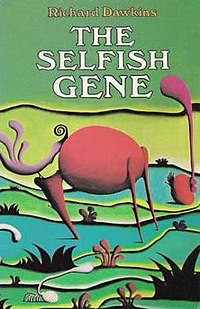Adam Smith (1723-1790) on ultimate and proximate causes in psychology
This post is part of a series on the ‘history of social sciences’.
Monday Tuesday Wednesday Thursday Friday Saturday
Darwin’s theory of evolution allows us to draw a distinction between ultimate causes—the evolutionary pressures that led to the selection of a particular psychological disposition—and the proximate causes—the psychological mechanisms that cause individuals to behave in a certain way. As the authors of a recent article put it, “ultimate explanations are concerned with why a behavior exists, and proximate explanations are concerned with how it works.”
At first sight, it seems like it should be impossible to get at that distinction without the theory of evolution, which appeared almost a century after Adam Smith lived and wrote. How, then, could Smith be said to talk about ultimate and proximate causes?
In the XVIIIth century, philosophers were not aware of natural selection. They were well aware, however, that species had been designed somehow, and that their organs had some particular ends. As Smith put it:
“In every part of the universe we observe means adjusted with the nicest artifice to the ends which they are intended to produce; and in the mechanism of a plant, or animal body, admire how every thing is contrived for advancing the two great purposes of nature, the support of the individual, and the propagation of the species. But in these, and in all such objects, we still distinguish the efficient from the final cause of their several motions and organizations. The digestion of the food, the circulation of the blood, and the secretion of the several juices which are drawn from it, are operations all of them necessary for the great purposes of animal life. Yet we never endeavour to account for them from those purposes as from their efficient causes, nor imagine that the blood circulates, or that the food digests of its own accord, and with a view or intention to the purposes of circulation or digestion. The wheels of the watch are all admirably adjusted to the end for which it was made, the pointing of the hour. All their various motions conspire in the nicest manner to produce this effect. If they were endowed with a desire and intention to produce it, they could not do it better. Yet we never ascribe any such desire or intention to them, but to the watchmaker, and we know that they are put into motion by a spring, which intends the effect it produces as little as they do”.
Although the philosophers of the XVIIIth understood the world as a product of a divine plan, their distinction between final causes (ends) and efficient causes (mechanisms) thus maps very well with our contemporary distinction between ultimate (evolutionary) and proximate (psychological). But more importantly, Smith proposes to use this distinction to understand the mind. In a passage that reminds me of contemporary advocates [1] of evolutionary psychology, Smith wrote:
“But though, in accounting for the operations of bodies, we never fail to distinguish in this manner the efficient from the final cause, in accounting for those of the mind we are very apt to confound these two different things with one another. When by natural principles we are led to advance those ends, which a refined and enlightened reason would recommend to us, we are very apt to impute to that reason, as to their efficient cause, the sentiments and actions by which we advance those ends, and to imagine that to be the wisdom of man, which in reality is the wisdom of God”.
In other words, says Smith, we often take the ultimate causes of our conduct (their apparent rationality) to be their proximate causes (through a rational calculus). Smith takes the example of punishment:
“Though it commonly requires no great discernment to see the destructive tendency of all licentious practices to the welfare of society, it is seldom this consideration which first animates us against them. All men, even the most stupid and unthinking, abhor fraud, perfidy, and injustice, and delight to see them punished. But few men have reflected upon the necessity of justice to the existence of society, how obvious soever that necessity may appear to be”.
Although we may think that punishment is useful, it is not the thought of punishment’s usefulness that causes us to punish others. It is rather, says Smith, because nature (the ultimate cause) had equipped us with a moral sense (the proximate cause) that gives us the feeling that crimes have to be punished.
“That it is not a regard to the preservation of society, which originally interests us in the punishment of crimes committed against individuals, may be demonstrated by many obvious considerations. (…) when a small sum is unjustly taken from us, we do not so much prosecute the injury from a regard to the preservation of our whole fortune, as from a regard to that particular sum which we have lost; so when a single man is injured, or destroyed, we demand the punishment of the wrong that has been done to him, not so much from a concern for the general interest of society, as from a concern for that very individual who has been injured.”
Now that we have seen the astonishing convergence between pre- and post-Darwinian anthropologists, it is worth noting as well that there are a number of crucial differences: the most important being, in my view, the fact that the ‘divine plan’ does not distinguish between “the support of the individual, and the propagation of the species.” In other words, the pre-Darwinian vision remained blind to the fact that organs could not have evolved for the good of the species—because natural selection does not operate at the level of the species, but only for the good of genes.
This distinction is crucial when you’re studying morality: if you think that morality has evolved for the good of the species, there’s no problem—everyone helps everyone and this is the best of all possible worlds. But if you think that morality has emerged for the sake of the genes, then you’ve got a problem: what’s the point of helping others in the state of nature?! This question—one of the most important today in social sciences—was unfortunately beyond the grasp of Adam Smith. Anthropology will need to wait for Darwin, and even Williams and Dawkins—and the gene-centered view of evolution—to understand that there is a genuine and complex question here.
 Picture: Richard Dawkins’s 1976 book The Selfish Gene was a notable early work of popular science
Picture: Richard Dawkins’s 1976 book The Selfish Gene was a notable early work of popular science
that focused on the gene-centered view of evolution.
[1] https://www.cep.ucsb.edu/
1 Comment
You must be logged in to post a comment.



Dan Sperber 30 June 2011 (14:56)
In two earlier comments on Nicolas’ ‘History of social sciences’ posts, I complained that there was too much projection of our concepts and concerns on past authors, a time-dimension version of ethnocentrism (chronocentrism?). It would be unfair not to praise this post on ultimate and proximate causes, where Smith’s own perspective and limitation are highlighted at the same time as are commonalities between pre- and post-Darwinian understanding of causes. This post is moreover relevant, I believe, in showing why indeed a partial grasp of ultimate causes and of function was possible before Darwin(contrary to Dobzhansky’s oft quoted title, “Nothing in Biology Makes Sense Except in the Light of Evolution” – an essay by the way that ends with a quote of Teilhard de Chardin and the following sentence: “Teilhard was a creationist, but one who understood that the Creation is realized in this world by means of evolution.” Ah ah!). Let’s not hail, but let’s acknowledge partial understanding.